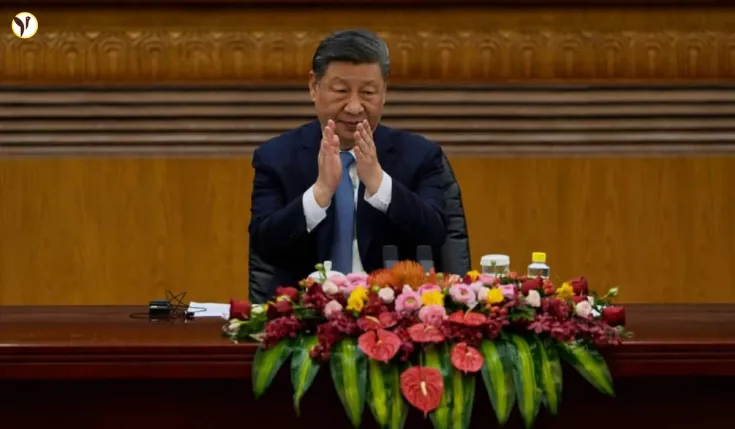India-Pakistan Tensions Flare: A Delicate Balancing Act
The recent escalation of tensions between India and Pakistan, marked by India's "Operation Sindoor" airstrikes, has sent shockwaves through the region and drawn international attention. This operation, a response to the Pahalgam terrorist attack, highlights the complex and long-standing relationship between the two nuclear-armed nations, and the delicate role played by global powers like China.
China's Measured Response and Concerns
China, a close ally of Pakistan, expressed its regret over India's military action. A statement from the Chinese foreign ministry urged both India and Pakistan to exercise restraint and prioritize peace and stability. The statement emphasized China's opposition to all forms of terrorism and its call for a calm and measured response from both sides. This measured response, while supporting Pakistan, underscores China's desire to avoid further escalation in the region. The timing of the statement is also significant, coming as Chinese President Xi Jinping is visiting Russia.
- Key takeaway: China's response showcases its difficult position, balancing its relationship with Pakistan with its broader regional stability concerns.
China's top diplomat, Wang Yi, engaged in direct communication with Pakistani officials, reiterating China's support for an impartial investigation into the Pahalgam attack and emphasizing that conflict serves neither India nor Pakistan's interests. This demonstrates China’s active diplomatic efforts to de-escalate the situation.
Operation Sindoor: India's Retaliation
India's "Operation Sindoor" involved missile strikes on nine alleged terrorist targets in Pakistan and Pakistan-administered Kashmir (PoK). The operation was presented as a targeted response to the Pahalgam attack, which claimed 26 lives. Indian officials emphasized that the strikes were "focused, measured, and non-escalatory," targeting terrorist infrastructure and avoiding Pakistani military facilities. The Indian government briefed several world leaders, including those from the US, UK, Russia and Saudi Arabia, on the operation.
- Important Note: The naming of the operation, "Sindoor," a reference to the red vermillion worn by Hindu married women, is a potent symbol highlighting the emotional impact of the Pahalgam attack, where several women lost their husbands.
Following the strikes, India saw increased security measures, with a red alert declared in Uttar Pradesh. The Indian Rupee also experienced a decline, reflecting market anxieties surrounding the potential for further escalation.
The Global Implications and the Future
The India-Pakistan conflict has long been a source of regional instability, and this recent escalation underscores the enduring challenges. The international community's response will be critical in shaping the trajectory of the conflict. The actions and reactions of key players such as China, the US, and Russia, will play a crucial role in determining whether de-escalation or further escalation prevails.
The situation is highly volatile, and the coming days and weeks will be crucial in determining the future course of events. Both sides will need to carefully weigh their options, while the international community will need to work toward de-escalation through dialogue and diplomacy. The long-term implications of this conflict remain uncertain, impacting not only India and Pakistan but also the broader regional stability.
Conclusion
The India-Pakistan conflict, reignited by Operation Sindoor, is a complex and dangerous situation. China's measured response reflects the delicate balancing act of global powers navigating this volatile dynamic. The international community must actively engage in diplomacy to de-escalate tensions and prevent further violence. The future trajectory of the relationship between India and Pakistan remains uncertain and demands close monitoring.






